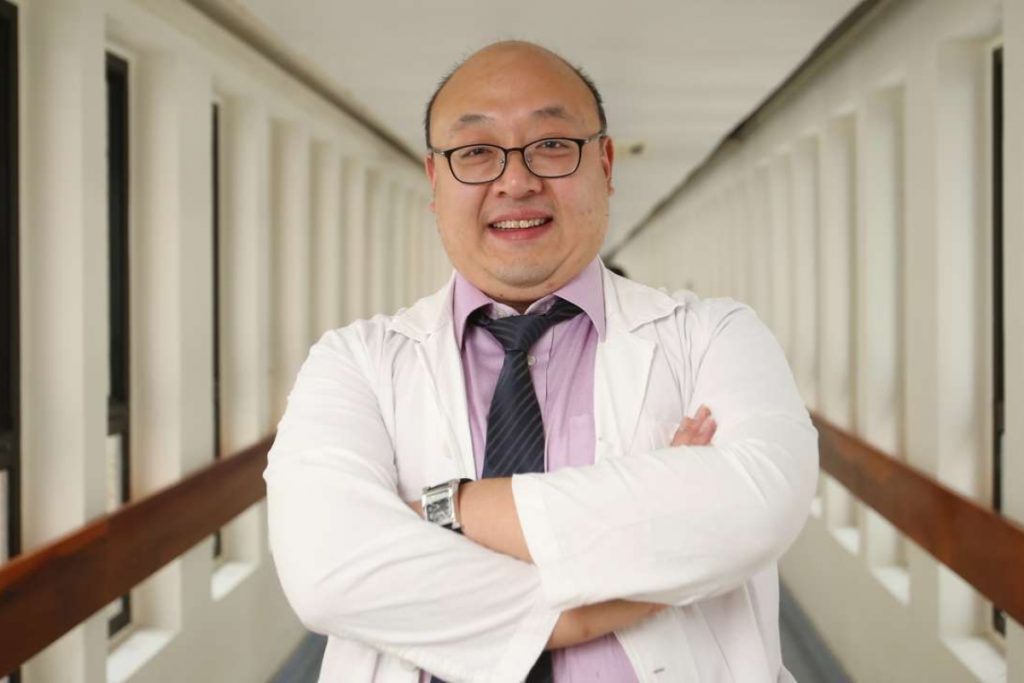College of Paediatricians designs nine-year course to meet demand for specialist services

Demand for medical services in clinical genetics has seen a threefold increase over the past six years, prompting a top medical body to design added training programmes for Hong Kong’s doctors.
Dr Brian Chung Hon-yin, a clinical associate professor from the University of Hong Kong, told the Post that new patients visiting Queen Mary Hospital for services relating to genetic disorders had increased from eight per week in 2010 to about 24 currently.
Meanwhile, figures from the Department of Health show about 1,500 new genetics-related diagnoses and referrals have been received each year over the past five years.
However the number of patients seeking clinical genetics services could be far greater, according to Chung, as around 80 per cent of rare diseases are rooted from genetic problems.
“Cardiologist might contact patients with heart diseases only, but clinical geneticist would see patients from cardiology, neurology or orthopaedics. There is a great demand of service,” he said.
Dr Ivan Lo Fai-man, a specialist from the health department, said having more doctors with expertise on clinical genetics could improve diagnoses for patients with rare diseases.
“There are more than 3,000 types of genetic diseases. Many cases we are handling could be one in every several thousands people, while uncommon ones could be one in every 50,000 to 100,000 people,” Lo said.
Dr. Brian Chung Hon-Yin, one of only three clinical genetics consultants operating in Hong Kong. Photo: Xiaomei Chen
Demand for medical services in clinical genetics has seen a threefold increase over the past six years, prompting a top medical body to design added training programmes for Hong Kong’s doctors.
Dr Brian Chung Hon-yin, a clinical associate professor from the University of Hong Kong, told the Post that new patients visiting Queen Mary Hospital for services relating to genetic disorders had increased from eight per week in 2010 to about 24 currently.
Meanwhile, figures from the Department of Health show about 1,500 new genetics-related diagnoses and referrals have been received each year over the past five years.
However the number of patients seeking clinical genetics services could be far greater, according to Chung, as around 80 per cent of rare diseases are rooted from genetic problems.
“Cardiologist might contact patients with heart diseases only, but clinical geneticist would see patients from cardiology, neurology or orthopaedics. There is a great demand of service,” he said.
Dr Ivan Lo Fai-man, a specialist from the health department, said having more doctors with expertise on clinical genetics could improve diagnoses for patients with rare diseases.
“There are more than 3,000 types of genetic diseases. Many cases we are handling could be one in every several thousands people, while uncommon ones could be one in every 50,000 to 100,000 people,” Lo said.
“When the disease is rare, ordinary doctors aren’t expected to know.”
Chung and Lo are among the city’s three clinical genetics consultants – doctors who are experienced enough to decide treatment plans for patients.
By contrast, the UK requires a minimum of three clinical genetics consultants for every one million people.
Without enough specialists to coordinate treatments in Hong Kong, patients are forced to visit different specialists when they suffer from multiple symptoms. Consequently, Chung said follow-up consultations are not done systematically.
The College of Paediatricians is currently designing a course in clinical genetics to equip doctors with the skills required to meet the growing demand and to bring the city’s services on par with countries such as Canada or the UK.
The courses are expected to be launched within a year.
“There is a great emphasis on genetics as most genetic diseases occur in childhood,” college president Professor Lau Yu-lung said.
The training will take up to nine years to complete, including six years in general paediatrics and two to three years in clinical genetics.This article appeared in the South China Morning Post print edition as: Training course launched as city faces shortage of clinical genetics experts
Original: South China Morning Post
